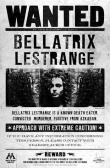
Текст книги "Ancient Shores"
Автор книги: Jack McDevitt
Жанр:
Научная фантастика
сообщить о нарушении
Текущая страница: 16 (всего у книги 20 страниц)
April picked it up, listened for a minute, and said, “Thanks.” She replaced the receiver and turned to Max. “There are some investors,” she said, “forming a corporation to control travel to all the worlds connected to the Roundhouse. They’ve offered three-quarters of a billion dollars for exclusive rights.”
“The price is going up,” said Max.
“They call themselves Celestial Tours.” She smiled sadly.
Detroit, Apr. 1 (Reuters)—
The Detroit Free Press today reported that the Detroit Lions may move to Fargo, North Dakota. According to unnamed sources, the club has agreed to a deal with Manuel Corazon, CEO of Prairie Industries, and the sale will be announced tomorrow. Pending approval by the rest of the league, the team would move next year and become known as the Fargo Visitors.
Prairie Industries is a conglomerate specializing primarily in the manufacture of agricultural equipment.
Larry King special on TNT, April 1. Guest: Dmitri Polkaevich, winner of the Pulitzer prize for Iron Dreams, a definitive history of the USSR. Topic: the new Russian revolution. (Suggested by then-current fears that a right-wing Russian coup was imminent.)
King: You don’t feel, then, that a resurgence of nationalism is likely?
Polkaevich: The world is changing very rapidly, Larry. No, it is true there are those in Russia who would give us their own peculiar brand of fascism, if they could. Just as there are those who would return to Lenin. But the tide of history is running against them all.
King: Well, I’m happy to hear it. If I may ask before we go to the phones, where is the tide of history taking us?
Polkaevich: Predicting the future is a dangerous enterprise.
King: Yes. But you just implied—
Polkaevich: That some tendencies are evident. Larry, you have of course been following the events along the Canadian border?
King: The Roundhouse? (Smiles) I wouldn’t know how to get away from them. In fact, we’ll be doing a show from there next week.
Polkaevich: The bridge to the stars is a Rubicon.
King: For Russian politicians?
Polkaevich: Oh, yes. And for the Armenians. And the Chinese. Larry, I no longer think of myself as a Muscovite. Or even as a Russian. No. You and I are citizens of Earth. The era of national borders, of governments that divide us with their petty squabbles, is passing into history.
King: Governments are becoming obsolete?
Polkaevich: Individual governments, yes. I think we will soon see a world body. Unfortunately, the transition period will be a dangerous time. People tend to disparage their governments, but they will fight to the death to keep them. And there is good reason for their fears. If a world government becomes oppressive, where does one flee? Although now perhaps we have an answer to that problem. (Chuckles)
King: Dmitri, your comment that you no longer think of yourself as a Russian intrigues me. I wonder if you can elaborate a little more on that.
Polkaevich: Larry, we know now we are not alone. There are others out there somewhere, and they are quite near. This knowledge will cause us to draw together.
FBI/CONFIDENTIAL
TO: Intel IV
FROM: SAC, Morton, ID
SUBJECT: Initial Report/SIR27
New right-wing hate group is forming in this area in an effort to seize the entrance to the off-world site at Johnson’s Ridge, ND. They are designing a charter calling for occupation of the new world, followed by a quick drive for statehood.
Attachment A lists active insiders. Almost everyone associated with the governing board of this organization is on file. Attachment B contains press releases and public pronouncements by John Fielder, spokesman for the group, and Abner Wright, its founder. You will note their concern with getting the Roundhouse out of the hands of foreigners (they seem to be referring to the Sioux) and their stated willingness to use force. Will advise as situation develops.
TO: Director, Customs Management Center,
Chicago, IL
FROM: Area Port Director, Fort Moxie, ND
SUBJECT: Roundhouse, Status of
As you are aware, people are entering and exiting the country through a “transdimensional door” on Johnson’s Ridge. Please advise whether Johnson’s Ridge should be considered a port, for customs purposes. Of course, no one is bringing back commercial merchandise, at least to our knowledge. But there are fish and game requirements and other laws that would come into play.
If instructed to establish an entry area, please note that the action will require additional personnel.
Project Forty’s ratings had gone through the roof. As a consequence, criticism of Old-Time Bill also soared.
Bill’s enemies were the mainstream press, liberal politicians, and left-leaning churches, which is to say all the various forces that were conniving in the moral collapse of the American people. They accused him of every conceivable crime but concentrated particularly on fraud and hypocrisy. They charged that he used religion to solicit donations, that he was a theological con artist, that he probably didn’t even believe in God.
None of this, strictly speaking, was true. To deal with the last first, Bill didn’t think seriously enough about theology to worry about details, but he sincerely believed that, as he often preached, everyone had a direct line into God’s study. Don’t hesitate to use the phone, he said; say what you really mean, and God will never put you on hold.
He sincerely believed in his own uprightness, because he gave hope to the despairing, meaning to those who had lost direction, and a sense of belonging to the unloved. To all who came to him, who wandered the various Sinais of their lives in keeping with the spirit of the Volunteers, he offered redemption, an easing of pain, and a celestial compass.
Oh, yes, Bill was a believer. God stood by Bill’s side when the choir was singing and the pipes were playing and people sobbed out their sins and promised to amend their lives.
And he most certainly did not do it for money.
The money was nice; he never denied that. But he thought of it as a corollary benefit for doing what was right, for walking the path of the Lord, for living by the Book. His real motivation would have been found in the exhilaration of standing before audiences in English-speaking countries around the world and feeling their response to God’s truth. He loved to draw them into the power of the Word, to hold their emotions in his hands, and, with his soaring rhetoric, to loosen the chains that bound them, not to an earthly existence, but to prosaic lives.
Bill understood the romance implicit in the tales of a desert God who had loved his people and who had eventually faced the Roman cross for all who had ever drawn breath. Yes! That was what people understood and what they loved. And they loved him because he had made himself part of the message.
His second Fort Moxie broadcast took place during the last snow storm of the season. Ordinarily, Bill didn’t get to see much snow, and it inspired him. While the flakes drifted against the windows, he understood God’s love for Adam in spite of his disobedience. And he felt his people’s hearts beat with his.
“But Adam has gone back into the Garden.”
“Amen,” cried the Volunteers.
“O Lord, we need your strong arm.”
“Alleluia!”
“Give us a sign. Show the faithless You stand by our side!”
He urged his listeners to write to their representatives. “Demand that we withdraw. For we are deaf to His word.” Tears appeared in his eyes. The wind began to build. Bill felt the Presence. “Show them your strength, God of Abraham,” he said. “I ask it in your Son’s name.”
The chorus, on cue, burst into “Rock of Ages.” The room shook and people sobbed and the wind wrapped itself around the building. Amanda Dexter, who could always be counted on to go to pieces at the climax of a good service, shrieked her undying gratitude to her Creator and collapsed in a quivering heap.
They rolled through several choruses while the wind played with the windows. Bill felt something open in his soul, and the power of the Angel of the Almighty entered into him. He knew once again the sheer exuberance of bringing people to the Lord. He flowed into the Angel and became one with it, directing the storm, watching the snow submerge the harsh angles of roof and shutter and drainpipe, enshrouding the building, burying it, removing its harsh lines.
Abruptly, he was back inside and the organ had stopped, and the Volunteers were in the aisles, exhausted, helping one another to their feet, delivering alleluias, collapsing into chairs.
“Praise the Lord,” said Mark Meyer, whose face was ashen. “Did you feel it?” He was looking directly at Bill.
“Yes,” said Bill, shakily. “I felt it.” Tonight, more than at any other time in his career, he knew he walked with the Blessed. “I think we got the sign,” he added. “I think we actually got the sign.”
He remembered the TV cameras. And at that moment, while he wondered if the network had picked up his remark, the lights went out.
“Check the circuit breakers,” someone shouted.
His people didn’t mind a little power failure, and they laughed their way through “Victory in Jesus.”
Bill put on his headset so he could talk to Harry Staples, his maintenance chief. “I’ll have the lights back in a second,” Harry said.
The room was absolutely dark. Bill could not even see any illumination coming in through the windows. That suggested the streetlights had also gone out.
“Everybody stay put until we get the power working again,” Bill said.
His producer reported that they were off the air. “But we went with a bang,” he added. The Whitburg studio had picked up and was covering with gospel music.
The Volunteers finished with “Joshua.” They cheered, conquering failed lights the same way they conquered everything else.
Harry’s voice again: “Power failure’s outside, Reverend. We’ve lost the heater, too.” Flashlights had appeared on the stairs.
“Okay,” said Bill. “Let’s close up and clear out.” They were staying in motels in Morris, Manitoba, about a half-hour north of the border. He turned to his audience. “You folks have done great,” he said. “Let’s go home.”
They were already filing toward the door, struggling into coats and boots. Bill waited, talking with his people. He heard the front door open.
And a rough masculine voice, breaking tone with the evening, said, “Hey, what the hell is this?”
Bill heard a whimper.
The door had opened on a wall of snow.
Frank Moll was at home listening to a Mozart concerto when the lights went out and the music died. Through his picture window, he could see that the streetlight located immediately in front of the house had also gone dark.
Peg came out of the den with a flashlight, headed for the circuit breakers.
“They’re off all over,” Frank said, reaching for the phone book.
“We are sorry,” came the recorded response at the electric company, “but all our service representatives are busy. Please stay on the line.”
He hung up, sat down, and propped his feet on the hassock. “Must be lines down somewhere,” he said. It was cold outside, but the house was well insulated.
They talked in the dark, enjoying the interruption in their routine. Across the street, Hodge Eliot’s front door opened. Hodge carried a lamp out onto his porch and peered down the street.
The phone rang.
“Frank?” He recognized Edie Thoraldson’s voice. “Something’s happened at Kor’s place. We’re sending the unit.”
That was the Quick Response Team, which Frank had once directed. “What?” he asked. “What happened?”
“I’m not exactly sure,” she said. “Apparently somebody got buried. I’ve got the police coming in from Cavalier. I thought maybe it wouldn’t be a bad idea if you took a look.”
“Okay,” he said, puzzled.
Peg looked at him, worried. “What is it?” she asked.
“Don’t know. Edie says somebody got buried. What the hell does that mean?” He had his coat on already. “Keep the door locked,” he said.
Kor’s house was only six blocks away. He paused in his driveway for a stream of cars carrying volunteer firemen. Then he backed out into the street and turned left. Two minutes later he parked behind a gathering crowd a half-block away from Kor’s house. He was just behind the Quick Response Team. The neighborhood was thick with box elders, and it was hard to see what was happening. But he could hear a lot of crowd noise.
The fire engine rolled in. The crowd split and flowed away from the emergency vehicles. And Frank finally got clear of the trees.
Where Kor’s house, lately the Backcountry Church, had been, there was now a two-story-high snow cylinder. The snow was swirled at the top like soft ice cream.
27
He asked for a sign.
–Mike Tower, Chicago Tribune (commenting on Old-Time Bill and the freak storm at the Backcountry Church)
Harry Mills liked to say he was pure corn country, bred true. He had spent thirty years in the Congress of the United States, eight as chairman of the Senate Armed Services Committee, before becoming Matt Taylor’s vice president. Harry told people he had no political ambitions other than to serve his nation well. He would be seventy-seven before he could hope for a run at the top job.
He had therefore decided to retire at the end of Taylor’s first term, while he was still young enough to enjoy the leisure. He would write his memoirs; travel the country to spend time with his grandchildren, who were scattered from Spokane to Key West; and get back to playing serious bridge, a pursuit he’d abandoned a quarter-century ago.
The reality was that Harry probably had become too old. He had lost his passion for politics, his taste for power. He no longer enjoyed influencing policy, or rubbing shoulders with the decision makers, or even making the Sunday round of talk shows. Tonight he was at a reception for the Jordanian king, and he devoutly would have preferred to be home with Marian, shoes kicked off, watching a good movie.
As was usually the case at these outings, he was being stalked by half a dozen predators who wanted to use him to push their agendas. One was the NASA director, Rick Keough, who caught up with him near the hors d’oeuvres.
Harry didn’t like Keough very much. The director was a former astronaut, so he was popular with the general public. But he was given to grandstanding, and he was less interested in the organization than he was in his own career.
Keough was nursing a rum and Coke and trying to look like a man bearing up under misfortune and bureaucratic stupidity. They exchanged pleasantries, and he came to the point. “Mr. Vice President, we have a problem. This thing on Johnson’s Ridge. My people are starting to wonder whether they have a future.”
Keough had headed the effort to return to an aggressive manned program when that idea was popular, and during recent years had argued just as effectively for economy, science, and safety. He was short, barely five-six, narrow of both shoulder and intellect. There was an elusiveness in his character, a tendency to become distracted or change the subject without warning. Talking to Keough, one of the capital’s pundits had once remarked in print, was like trying to carry on a conversation with a man hiding behind a tree.
“How do you mean?” asked Harry.
“Are you serious? What’s the point of boosters and shuttles when you can walk?” He finished off his drink. “What is the President going to do about that thing?”
Harry was tired of hearing about the Roundhouse. He was not a man easily rattled, and he was convinced that, given time, it would all blow over. When it did, life would go on. “Relax, Rick,” he said. “There will always be a mission for NASA.”
“Well, maybe somebody better tell that to my people, because they are looking around. Mr. Vice President, they are going to start bailing out. These are dedicated people. And they can’t be replaced. Once they get the feeling that what they do doesn’t matter anymore, they’re gone. The organization will die.”
And your job with it. “I’ll talk to the President,” Harry said. “I’m sure he’ll be willing to issue a statement of purpose.”
“I think he’ll have to do better than that. You want my suggestion?”
Harry fingered his glass, waiting.
“Condemn the area. Send in a flight of F—111’s and take the top off the escarpment. You can apologize later, and nobody will complain. Nobody.”
DRIVER IN FATAL CRASH CLAIMS ATTACK BY “VISITOR”
Grand Forks, ND, Apr. 2 (UPI)—
A driver charged with vehicular homicide in Saturday’s seven-car crash on I—29 has claimed that “something” took the wheel out of his hand and drove the car across the median into oncoming traffic. John Culver, twenty-nine, of Fargo, insisted yesterday that he had no way to bring his 1997 Honda under control. Police have said Culver was legally drunk when he crashed head-on into a station wagon, beginning a chain of collisions that killed three.
The press conferences on Johnson’s Ridge were held daily at one o’clock. Pool reporters, wearing pressure suits, had visited the galaxy terminus, which seemed to be located on an off-world platform. No one knew for certain, because no exit from the chamber could be found. But if it was indeed off-world, then it followed that artificial gravity was now within reach. An expedition was being planned.
Today, however, no one was interested in anything other than the Visitor.
Flanked by Adam Sky, April began by issuing a short statement that admitted a remote possibility that something might have come through the port. “We don’t think so,” she said. “We are reasonably sure that the only thing that happened was a brief malfunction. The malfunction opened a channel between Johnson’s Ridge and one of the terminus worlds.”
“The Maze?” asked Peter Arnett of CNN.
“Yes,” she said.
“April,” he pursued, “when are you going to open it up for us? The Maze?”
“As soon as we can be sure it’s not inhabited, Peter.” (Wrong word: She should have said “not occupied.” Sounded less ominous.) “But I’d like to reiterate that we spent more than two hours over there. We saw no sign of life. And we were in no way molested, attacked, or threatened by anyone. After we returned, the system reactivated on its own. No one appeared, and there was no evidence to suggest it was anything but a malfunction. And I hope this puts the rumors to rest.”
“You saw nothing at all?” asked Le Parisien.
“That’s correct.”
“But that’s what you’d expect to see, isn’t it,” asked the London Times, “if the creature was invisible?”
“How can I respond to that?” asked April. “We didn’t see anything. More than that I can’t say. If the Times wants to speculate, go ahead.”
“How do you account for Deekin’s statements?” asked a reporter from Pravda. “Deekin swears something came across.”
April allowed herself to look distressed. “You’ll have to ask Dr. Deekin about that.”
Reporters, like everyone else, love a good story. And April knew they were torn between their natural skepticism and an unexpressed hope that there was something to the rumor. Everyone understood that this was the sort of thing that sold newspapers. A lot of newspapers.
She had, of course, been less than candid. The guard who had seen the wrong icon light up had been George Freewater. George also believed something had come across. But they had learned the danger of going public with everything they knew.
“Tell a press conference what we really think,” Max had said, “and we’ll have a panic.”
Adam had disagreed. “Nobody’s going to panic. That’s government-speak. I think we’d do best to tell the truth.”
“Truth is overrated,” Max had said, looking wearily at him. “Have you been out to any of these towns lately? They’re barring the doors at night. And you won’t find many kids outside.”
The News at Noon, KLMR-TV, Fargo
Anchor: More strange goings-on in and around Fort Moxie today, Julie. First we have an exclusive interview with the man who claims to have spoken to the invisible creature that is haunting the border area.
(Cut to aerial shot of the railhead, where we see the depot and a line of tankers and empty flatcars; back off gradually for perspective)
There’s another report on the town’s so-called Visitor. Carole Jensen is in Noyes, Minnesota.
(We see Jensen standing by a railroad track; a white tank car is behind her)
Jensen: This is where it happened, Claude. We are at the tiny depot in Noyes, Minnesota, about a mile south of the Canadian border. A railroad employee may have had an encounter here a couple of days ago with the unearthly thing that is reported to have escaped from the Roundhouse on Johnson’s Ridge. The employee, Curt Hollis, was taken to a local hospital after the incident, although he’s with us today and seems to be okay.
(Camera moves away; Hollis is standing beside the reporter)
How do you feel, Mr. Hollis?
Hollis: I’m okay, thank you.
Jensen: What actually happened here?
Hollis: (Nervously) There was something calling my name. The wind, it sounded like. (Tries to imitate sound)
Jensen: Did anyone else hear it?
Hollis: Yes. The inspector heard it. Ask her. It was here.
Jensen: Did it say anything else?
Hollis: Not words.
Jensen: Not words. What, then?
Hollis: I don’t know exactly. It made me feel funny.
Jensen: In what way, Mr. Hollis?
Hollis: Like I was flying. Listen, you want the truth, it scared the—(Hesitates) It scared me pretty bad.
Jensen: And what happened next?
Hollis: I passed out.
Jensen: So there you have it, Claude.
(Camera withdraws to long overhead shot of freight yard)
At least one other person heard a voice out here. Was this depot the scene earlier this week for an unearthly encounter? Or is it just one man’s imagination running wild in a place where a lot of people are reporting eerie events?
Anchor: Thanks, Carole. Now to Fort Moxie itself, for another report from Michael Wideman at the Backcountry Church, where the Project Forty religious television show was interrupted last night.
Participant
Holyoke Industries Pension Plan
Dear Retiree,
As you are aware, the economy has been going through an extremely difficult period. Pension funds are connected to the economic welfare of the nation, and ours is no exception. We have, over the years, made every effort to safeguard our resources by investing conservatively and prudently. But no amount of foresight could have predicted the downturn of the last several weeks, nor would any measures have guarded against it.
Your company’s pension plan, like that of many other corporations, has seen the value of its securities drop substantially over a matter of days. Fortunately we have a reserve fund set aside specifically to carry us through this kind of emergency. But the sheer scale of the problems now besetting the nation requires us to manage our reserves carefully. In order to ensure that you may continue to rely on your pension, your May payment will be reduced by $421.00 to $1,166.35. We hope that this reduction will be a one-time event only. Be assured that the trustees of the pension plan are doing everything in their power to safeguard our collective future.
We appreciate your support and understanding during this difficult period.
J. B. Haldway, Acting Director
On the same day that Holyoke Industries mailed the bad news to its pensioners, a statement by Heinz Erhardt of the University of Berlin, last year’s Nobel Prize winner for economics, appeared in Der Tagesspiegel. Erhardt acknowledged that the world economy had been rocked by the news from North Dakota. “A short-term downturn,” he said, “is inevitable. But if technological applications in manufacturing and transportation become possible, as there is no reason to doubt they will, the world is headed into a period of prosperity unlike anything that has gone before.”
Nobody seemed to be listening. By day’s end, the Dow Jones was down another 240 points and still looking for a floor.
Larry King Live. Guest: Dr. Edward Bannerman of the Institute for Advanced Study.
King: Dr. Bannerman, you’ve been quoted as saying that the big news is the so-called galaxy world. Why is that?
Bannerman: (Laughs) Larry, this is all pretty big news. But the possibility that the chamber in which Arky Redfern died is actually located off-world is a monumental development in a series of incredible events.
King: Why?
Bannerman: I’m talking in practical terms now.
King: Okay.
Bannerman: The people fell down in that room. The reports indicate that the galaxy has not changed its position in the window. Therefore the facility, whatever it is, is not rotating. Or if it is, it is doing so very slowly. Now, that’s important because it implies that if the site is not located on a planetary surface, it incorporates artificial gravity.
King: I can see why that might have some importance. But—
Bannerman: Larry, if we can create artificial gravity, we can probably reduce, or even eliminate, gravity’s effects. I’m talking about antigravity. Think what it would mean to the average householder, for example. Want to move that sofa? Slap an antigravity disk on it and float it into the next room.
Horace Gibson had started life as an insurance salesman. Bored, he’d joined the Marines, risen to command a battalion, and won a Silver Star in the Gulf and the Medal of Honor in Johannesburg. His units had collected enough citations to paper his den. In 1996 he’d retired, tried another civilian occupation, real estate this time, and lasted almost a year. On the anniversary of his retirement from the Corps, he joined the U.S. Marshals Service.
Within two years he had become commander of the Special Operations Group (SOG). SOG was the marshals’ SWAT team, based in Pineville, Louisiana.
Horace was liked by his people. He was willing to take on upper management when occasion required, and he did not spare himself in ensuring that operations were carried out for maximum success with least risk.
He was twice divorced. His life had been too mobile and too erratic for either of his ex-wives. He had two sons, both of whom (with some justification) blamed Horace for the domestic failures, and whose relationships with their father were cool. Horace had found nothing to replace the wreckage of his personal life, and consequently he worked too many hours. His boss, Carl Rossini, liked to joke that Horace needed a woman in his life. He did, and he knew it.
Meantime, Horace took his entertainments where he could find them. These were growing fewer with the passing years, a result of his own aging and the narrowing of his taste. But there were occasional delights, one of which took the form of Emily Passenger, a gorgeous young woman he’d met at a fund-raiser for the Pineville library. They’d gone to dinner several times, seen a couple of shows, and had taken to jogging together. He had noted some reluctance on her part, however, toward pursuing a relationship, and he ascribed it to his track record. She did not want to become a third casualty.
Consequently Horace had embarked on a campaign to demonstrate that he was now both mature and thoroughly domesticated. The first step was to invite her for dinner at his place, and when she agreed, he had enthusiastically set about preparing the evening. He got in a couple of T-bones and an expensive bottle of champagne, invested in a kerosene lamp, which would help provide an offbeat atmosphere, and spent the day cleaning up. That evening, twenty minutes after he’d opened the champagne, his phone rang.
28
Oh, for a lodge in some vast wilderness…
–William Cowper, “The Task”
A thin, bearded man gazed out over the Pacific from his home at Laguna Beach. A freighter moved beneath a cloud-streaked sky. The sea was flat and calm.
There was an air of uncertainty in his bearing, and an observer would have had a difficult time deciding where his attention was directed. He held a glass of Mondavi chardonnay in his right hand.
The town, like the harbor, lay spread out before him. Traffic moved steadily along the coastal highway. He glanced at his watch, as he had been doing every few minutes for the past hour.
The phone rang.
He turned away from the window and sat down at his desk. “Hello?”
“Greg. It’s all set.”
It was almost two in Fargo. “Okay. Do they know we’re coming?”
“Not yet. Listen. How much influence do you have with the feds?”
“Not much.”
“Ditto.”
The man in Laguna Beach was looking at his plane tickets. “Have faith, Walter. See you in a few hours.”
SIX DEAD, HUNDREDS INJURED, IN AEROSPACE LOCKOUT
Seattle, Apr. 4 (AP)—
Labor tensions erupted into full-scale rioting today at three major aerospace firms when management locked out workers seeking to return to their jobs after a wildcat strike. The violence was a continuation of unrest since simultaneous announcements of “corporate reengineering” last week led to widespread fear of massive job eliminations.
DOES FORT MOXIE HAVE A VISITOR?
There have been reports from several sources that something from another world came through the port atop Johnson’s Ridge and is now loose in the Fort Moxie area. There are stories of voices in the wind, of child abductions, of storms that seem to target individuals. And there has been a death under mysterious, and one might even say ominous, circumstances.
Last week Jack McGuigan abandoned his snowmobile in the woods off Route 32, in Cavalier County, and ran out onto the highway, where he was struck by a moving van. The driver of the van said that McGuigan appeared to be fleeing from someone. Or something.
Cavalier County police have been inundated with sightings, and recent visitors to the area report that for the first time in memory, people are locking their doors.
Meantime, still wilder stories are getting started. Old-Time Bill Addison, who has ridden a number of celestial horses during his career, is warning that we have broken into the Garden of Eden and released an avenging angel. Or maybe a devil. The Reverend Addison is unclear on the details.
It seems that, with the unearthing of the Roundhouse, we are doomed to relive another of those popular delusions that revisit us periodically. We don’t yet know the facts in the death of Mr. McGuigan. But a probable scenario is not hard to reconstruct: He was hunting out of season; he thought he might be discovered; he became disoriented; and he stumbled onto a highway. Incidents like that happen every day. The voices around Fort Moxie can undoubtedly be ascribed to the active imaginations of the tourists, encouraged, perhaps, by some of the locals, who know a good thing when they see it. It all makes interesting reading, but we recommend keeping our feet on the ground. In the end, the facts will turn out to be suitably prosaic. (Editorial, Fargo Forum, April 4)




































